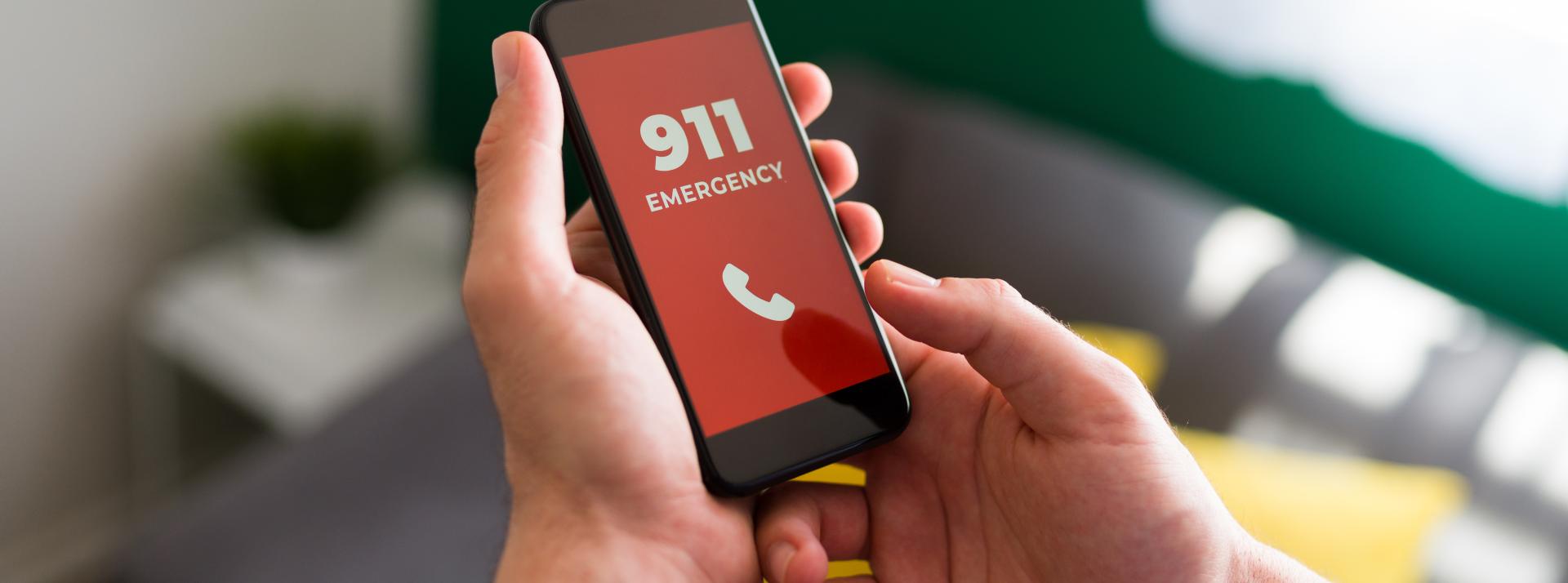Emergency care
Call 9-1-1 or go immediately to your nearest hospital Emergency Department if you or someone requires immediate medical attention for illness, injury or overdose. For crisis or suicide, call 1 (800) 784-2433.
When to go to an Emergency Department
Go to an Emergency Department for critical or life-threatening conditions or mental health emergencies. Our emergency departments provide the highest level of care for medical issues such as:
- Involvement in a major accident
- Trouble breathing or catching your breath
- Severe abdominal or chest pain/pressure
- Signs of stroke, for example facial droop, arm weakness or slurred speech
- Loss of consciousness
- Uncontrolled bleeding
Your loved one may need emergency mental health care if they are:
- At risk of or are threatening to seriously harm themselves or others. You can also access crisis intervention and suicide prevention services.
- Seeing or hearing things.
- Believing things that are not true.
- Unable to care for themselves such as not eating, sleeping, bathing, getting out of bed or dressing.
- Still having trouble with symptoms even after they tried treatment with therapy, medication and support.
Wait times can vary depending on time, location and your level of need. People are seen in the Emergency Department based on how hurt or sick they are, which means the sickest people are seen first even if you've arrived before them. Many of Vancouver Coastal Health’s hospital sites provide 24-hour emergency services, however operating hours may vary. Call HealthLink BC at 8-1-1 to verify hours of operation for emergency services.
View Emergency Department wait times

Choose the right care in the right place
Mental health crisis
In crisis? Call 9-1-1 for medical emergencies and missing persons. For crisis or suicide, call 1 (800) 784-2433. Online options are also here to support you:
Vancouver Coastal Health Hospital locations
Find details on locations and services offered at each of the hospitals in the region or use the find a location search to find a hospital near you.
When to go to an Urgent and Primary Care Centre
Urgent and Primary Care Centres (UPCC) provide patient-centred care by a team of health-care providers, including family doctors, registered nurses, nurse practitioners, social workers and clerical staff.
They are for people who have an urgent but non-life-threatening injury and/or illness, and need to be seen by a doctor or nurse practitioner within 12 to 24 hours. Some examples of injuries/illnesses that may be treated at a UPCC are:
- sprains and strains,
- high fever,
- worsening chronic disease,
- minor infections, and
- new or worsening pain.
UPCCs provide team-based, everyday health care. They provide urgent care when you are unable to see your family doctor or nurse practitioner and your injury/illness does not require emergency attention. Please visit an emergency department if you have a critical or life-threatening condition.
Vancouver Coastal Health UPCC locations
On-site x-ray services are available at the City Centre UPCC, North Vancouver UPCC and Richmond City Centre UPCC.
- City Centre Urgent and Primary Care Centre (UPCC) (Vancouver)
- Northeast Urgent and Primary Care Centre (UPCC) (Vancouver)
- Southeast Urgent and Primary Care Centre (UPCC) (Vancouver)
- REACH Urgent and Primary Care Centre (UPCC) (Vancouver)
- North Vancouver Urgent and Primary Care Centre (UPCC)
- Richmond City Centre Urgent and Primary Care Centre (UPCC)
- Richmond East Urgent and Primary Care Centre (UPCC)
Emergency department frequently asked questions
-
What should I bring to the Emergency Department?
If possible, bring photo ID, your BC Services Card or CareCard and a list of any medications you are taking. If available, please also bring any Medical Orders of Scope of Treatment (MOST) forms or have a loved one bring them in.
We also suggest you minimize bringing personal belongings or valuables to the Emergency Department.
-
What happens when I arrive at the Emergency Department?
- A Triage Nurse will assess your symptoms and vital signs upon arrival. Please have your photo ID, BC Services Card or CareCard, and a list of current medications ready.
- Patients are seen in the Emergency Department based on how ill or injured they are. Those with the most critical conditions are seen first, regardless of arrival time.
- Please be aware that your medical records from your family doctor are not accessible at the Emergency Department. Emergency doctors only have information about your medical history from previous visits to that hospital.
- VCH Emergency Department staff are dedicated to delivering the highest quality of health care. During your visit to the ED, we appreciate your patience as we wait for test results, interpretations, consultations, and other information necessary for your diagnosis and treatment.
-
What happens when I'm ready to go home from the Emergency Department?
- Your health care team will work with you to help plan when you will go home.
- Your doctor may write you a prescription for medication and a nurse will give you instructions on how to take the medication.
- Try to arrange a family member or friend to drive or accompany you home.
- Your health care team will work with you to coordinate any additional care that is required, such as home & community care services, care at another hospital or rehabilitation services.
Nurse advice and general health information
Call HealthLink BC at 8-1-1 (7-1-1 for the deaf and hard of hearing) for trusted health advice.
This free, 24-hour non-emergency telephone service is staffed by trained registered nurses, pharmacists and dietitians who can help answer your health-related questions with translation services in over 130 languages.
You may also call your family physician, nurse practitioner for general health information. If you have an urgent medication refill, speak with your pharmacist. They can often provide short-term refills and other advice.



